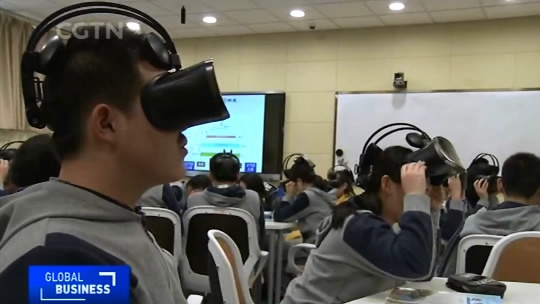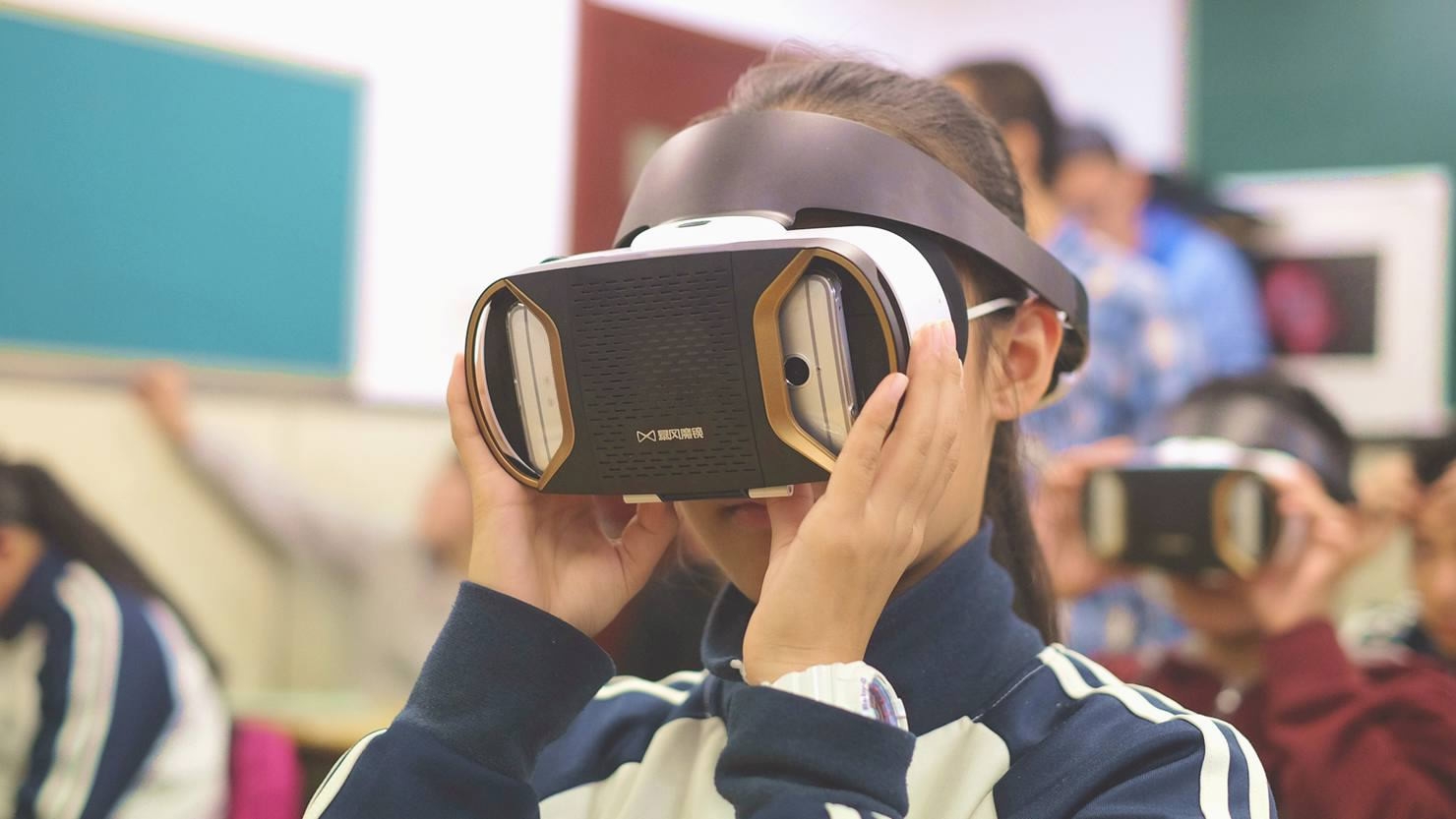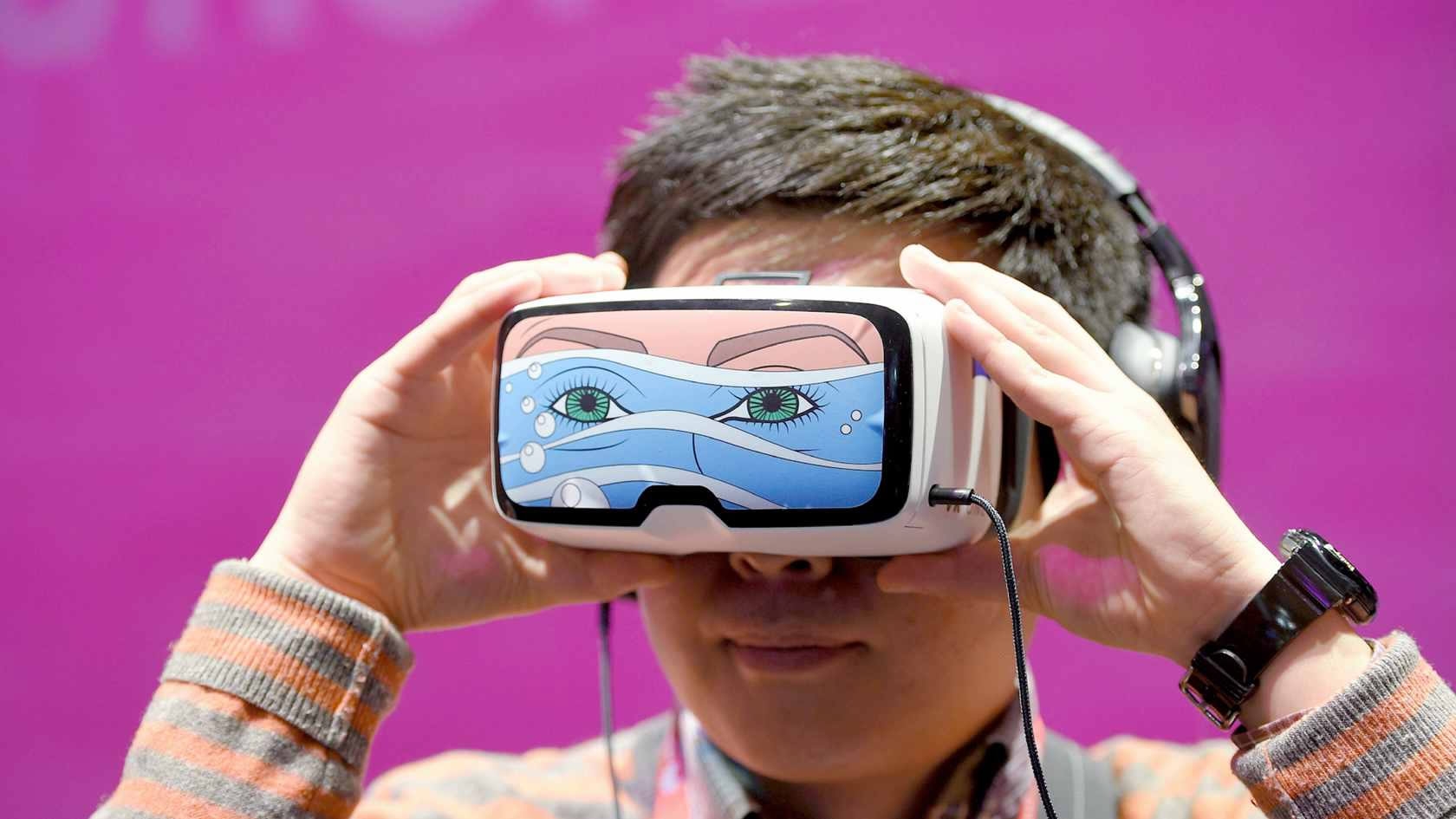By CGTN’s Global Business
As virtual reality (VR) devices become more affordable, schools and institutions have started using VR devices in classrooms to enrich students’ learning experience.
VR technology has enabled students to learn in a way that books or online media are unable to accomplish.

Students experience VR devices at class in a school in Chengdu. /CGTN Photo
With VR, students can fully immerse themselves in a virtual geographical world, enjoying the full view of the global atmospheric circulation, while learning world geography.
By touching the track pad of the VR glasses, students can search the content as well as interact with data sets that they may have previously found inaccessible.

A student experiences VR glasses at class in the Fourth Middle School in Beijing. /CFP Photo
As the early core research member of the Google Glass and with 17 years of research experience in the Head Mounted Displays field, the founder of Idealseed Group Dr. Song Haitao is optimistic about the future of VR technological development.
“For the VR industry, many technological difficulties have been solved, now is the problem of the supply chain and screen display. We need better clarity, high refresh rate VR screen and chip,” Song told CGTN.

A man experiences the latest VR device on the Mobile World Congress in Barcelona, Spain. /CFP Photo
Now VR devices have become more affordable and easier to purchase online with various prices and qualities available. As of the third quarter of 2016, China had over 5,000 VR experience stores.
Experts say the Chinese VR market is likely to be worth 8.5 billion US dollars by 2020. International Data Corporation (IDC) China forecasts China's VR industry is expected to expand more than four times in 2017 as competition intensifies and the market becomes more diverse.









